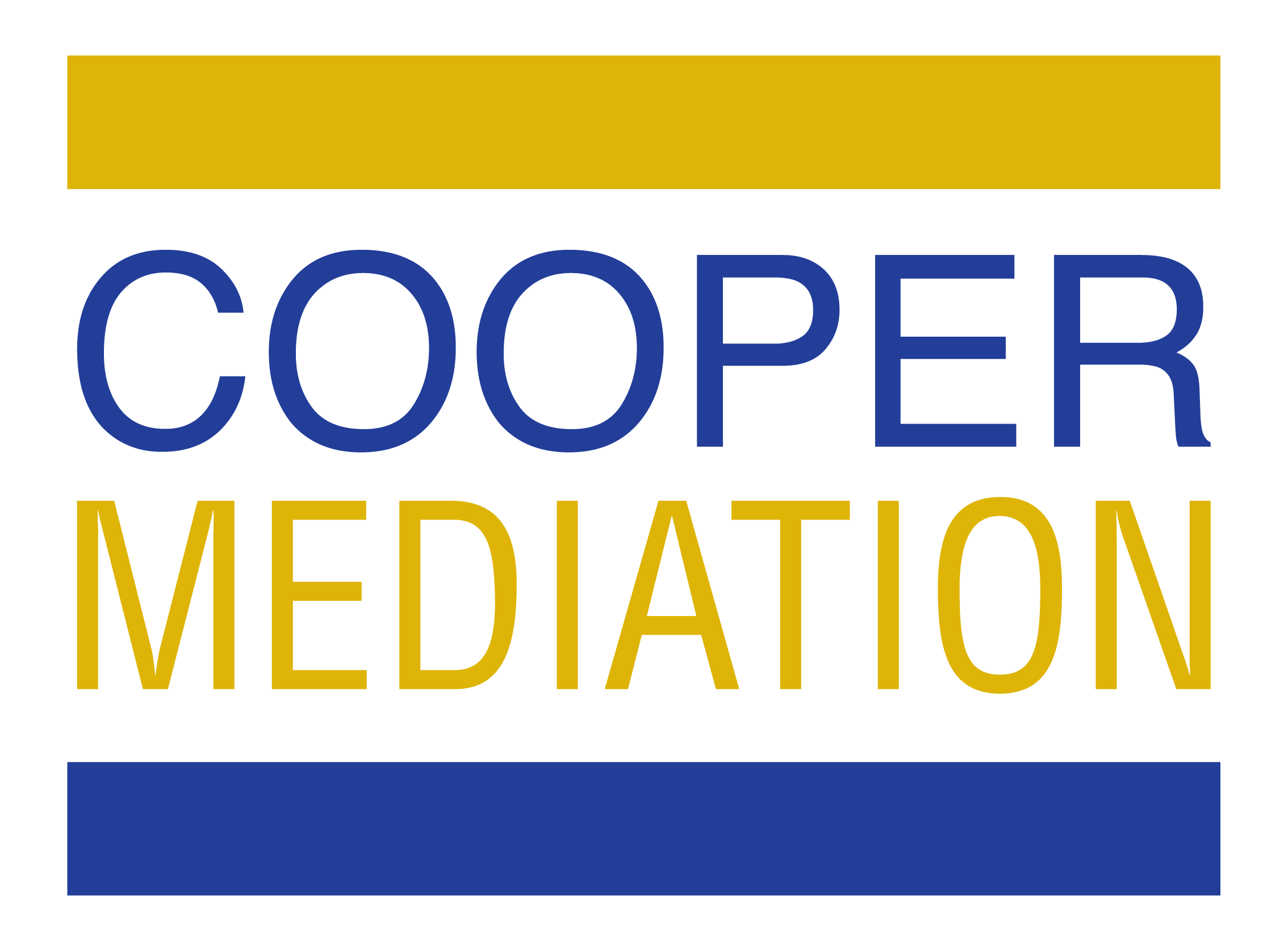
22 Feb Pre-Mediation Negotiations: A Help or Hindrance To An Effective Mediation?
“Well, it’s worth a try. What have I got to lose?” Unfortunately, when it comes to pre-mediation settlement discussions, the answer could be – a lot.
Recently, I have heard several of my colleagues promote the potential benefits of pre-mediation settlement talks. These talks could occur by way of informal discussions, “off the record” at an examination for discovery or phone calls and/or emails in the lead up to the scheduled mediation. When these talks go well, parties can end up in a better position than before.
For example, the parties may be able to resolve some of the outstanding issues in a matter, thereby creating a more focussed discussion at mediation. Even if a settlement is not forthcoming, the parties may gain valuable insight into each other’s positions and valuations of the matter to determine whether a zone of potential agreement is possible. Sometimes the talks reveal holes in each other’s positions and act as a prompt to send over productions and/or undertakings that may have slipped through the cracks. Pre-mediation negotiations can even build some trust or rapport between parties that will carry over into a mediation.
So, what’s the downside? Every one of these positives can easily turn into a negative. In this blog I’ll outline some scenarios where pre-mediation negotiations could set the stage for challenging mediations and suggest what you can do to try to avoid such a fate.
Let’s Make A Deal?
Imagine a situation in which – a year away from a scheduled mediation date – lawyers for the plaintiff and defence chat to see if they can hammer out a quick settlement. Sometimes participants in these discussions may not show their full hand and won’t provide hard numbers until they determine all sides are either close enough to reach a deal or at least within the same ballpark. Other times, actual offers may be tabled.
Let’s say a plaintiff lawyer states that (s)he is prepared to recommend that the plaintiff settle for $100,000 now rather than move the case along to later stages of the litigation process. Perhaps the defence lawyer counters with a willingness to recommend to their client to settle for $20,000. Neither side has these instructions in writing, but they are each putting some cards on the table with a view toward making reasonable offers to “get it done.” Sensing they are too far apart to reach a deal, the two sides agree to disengage and wait until the mediation before further discussions.
Now, fast forward to the opening offers on the day of the mediation.
Scenario #1: Asking For More
Let’s say the plaintiff lawyer submits a memo that has the exposure of the damages assessed at $150,000. Perhaps the plaintiff lawyer states that their previous recommendation of $100,000 to settle the case a year earlier was time limited, the case has changed, and the defence lost the opportunity to settle for that amount.
It is not my job as mediator to tell people what a case is or is not worth; I’m not a judge or an arbitrator. However, I would ask this of the plaintiff and their lawyer. “If the defence was unwilling to resolve the case for $100,000 previously, how has the case changed or improved to suggest they should be willing to pay you more than $100,000 now?” Is there new information that has materially moved the needle in the eyes of the plaintiff and their lawyer? More importantly, is this new information or new factual development likely to have materially moved the needle in the eyes of defence counsel and their client? Has the plaintiff been forced to stop working due to accident related limitations or complaints? If not, relying on the argument “that was then, this is now” probably won’t find favour with the opposing side.
In my most neutral mediator voice, I would ask, “How do you think that is going to make the other side feel?” If they wanted to pay $100,000 or anything close to it, wouldn’t they have picked up the phone and told you? Other than another year of fairly nominal prejudgment interest accruing on the non-pecuniary general damages, what else makes your case better now than it was then?
The same can be said for the defence. Subject to new information in a lawsuit, if you were prepared to recommend that your client offered $20,000 a year ago and the plaintiff lawyer told you they couldn’t secure instructions to settle the case, why would $20,000 settle the case now? Moreover, the disbursements that have been incurred are likely to have increased from one year ago. Other than an indexed deductible rising from one year to the next (for example, $39,556.53 in 2020 vs. $39,754.31 in 2021), why is the case materially better for the defence now as compared to one year ago? Moreover, is it likely that the plaintiff and their lawyer will see it that way?
Moving back to the actual mediation, you can see how this scenario can lead to a session going off the rails. If a plaintiff’s first offer is $150,000 and the defence responds with $10,000 because they were insulted by the plaintiff’s first offer, we’re now an hour into the mediation and further apart than a year earlier. We then spend the next hour of the mediation working toward bridging the gap between $150,000 and $10,000. Each side is likely to think they are wasting their time at mediation. In reality, the mediator is trying to resuscitate a mediation on life support and determine if the mediator can get the plaintiff back to $100,000 and get the defence back to $20,000 and then see if anything can be done to bridge the gap.
Each side only has so much capital or bandwidth available to listen to a mediator speak about offers (in my example, above, $150,000 and $10,000) which the receiving side feels are insulting or bargaining in bad faith and which we all know weren’t accepted and won’t be accepted moving forwards.
My question to the parties is “what do you hope to achieve?” If a settlement is your answer, perhaps we should talk about another strategy or plan.
Scenario #2: Asking For A Little More
I will use the same example with a slightly different starting place. Based on unsuccessful pre-mediation negotiations, the plaintiff adds a small premium to their opening offer at mediation. Let’s say the plaintiff starts the mediation by adding an additional $10,000, bringing the total opening offer to $110,000. In this scenario, what I frequently hear from plaintiff lawyers is “that $100,000 offer was to settle the matter and to close the file, not to start a negotiation.”
I can’t tell anyone what to do or what their case may be worth but, short of new information and/or evidence changing from the discussions of one year earlier, what response do you think you are likely to receive from the opposing side?
If we take an optimistic view, the plaintiff would seem to be signalling that they are creating room to negotiate but still expecting to end up near to their previous offer and most likely not contemplating a significant reduction. If the defence indicated their client would not settle close to $100,000 a year earlier and the plaintiff’s opening offer suggests they will probably not entertain an offer much lower than $100,000, enthusiasm for further negotiations will be dampened. I ask, “What do you wish to accomplish? What is the best way to go about doing that?”
I believe I can anticipate three likely options for the defence as to how they might respond to this slight increase in demand from the plaintiff (aside from leaving). Option 1 – get frustrated and make a counter-offer for less than $20,000. Option 2 – get frustrated, put the same $20,000 offer on the table and tell the plaintiff little is likely to be achieved at this juncture unless they make an offer below the prior $100,000 position. Option 3 – get frustrated, but ignore the plaintiff’s initial demand of $110,000, keep their eyes on their own ball and march along a path that makes sense towards an end destination that makes sense and which can be justified.
Ultimately, if settlement is your objective, moving in the opposite direction of resolution based on pre-mediation settlement discussions is unlikely to help you achieve your goal.
Scenario #3: Asking For The Same
If a plaintiff’s opening offer at mediation does not show any movement from the offer made during previous negotiations, the defence may wonder if the plaintiff has an interest in settling. Perhaps a plaintiff put all of their cards on the table while discussing early resolution. They believe the opposition should accept the number they presented or there is no point continuing negotiations. If so, formalize that offer in a Rule 49 compliant fashion and wait until the other side says yes or you end up at a pretrial two to three years later. It’s a form of anchoring, but without a formal offer, the opposition may just view the lack of movement at mediation as posturing.
If the intention is to settle the matter at mediation, restating previous offers is probably a waste of a round that otherwise could have been used to signal compromise. The move doesn’t need to be dramatic, but some indication showing a willingness to compromise might be just enough for the other side to put their best foot forward and respond in kind.
Scenario #4: Asking For A Lot Less
Perhaps a plaintiff’s first offer at mediation is significantly less than an offer made at pre-mediation negotiations, e.g. $80,000. On one hand, this movement could signal a true desire to work with the defendant on finding an appropriate compromise. Perhaps the defence appreciates the initial compromise from the plaintiff’s perspective, rewards good behaviour and takes a meaningful step in the direction of settlement and compromise. Alternatively, this initial movement could come with a message that further movement is unlikely (anchoring) unless the other side comes very close and gives your client something to think about.
On the other hand, making such a significant move after breaking off negotiations a year earlier could raise suspicions. The defence might wonder whether the plaintiff has discovered a significant weakness in their case over the course of the year or that the plaintiff is anxious to resolve the matter at mediation. The defence may believe this is a last chance effort to settle the case for the most amount of money. The defendant might move aggressively or be tempted to reduce their pre-mediation offer.
What Are You Hoping To Achieve?
Unless your attendance at mediation is mandatory, there is a general assumption that the parties are at the table in hopes of reaching a mutually acceptable agreement rather than waiting for a trial which takes the decision making out of their hands. If this is the case, parties should consider what their actions could suggest to other parties about their desire for resolution. Put yourself in the other party’s shoes. How would you react if they did the same to you?
Pre-mediation negotiations can sometimes help focus issues leading up to a mediation, but they can also unintentionally lead to a mediation becoming frustrating and perhaps doomed to achieve little or nothing that brings the parties closer together.
Negotiations and discussions at mediation, particularly when it comes to offers with messages and numbers, can benefit from the presence of an experienced mediator. As an independent facilitator, a mediator can help each party to make sense of their positions in the context of rounds of offers that can potentially diffuse misunderstandings or seemingly mixed signals. Mediators can apply filters, deflect blame and lay down solid groundwork to build bridges of compromise.
Mediations are very focused discussions where time constraints limit the kind of over-thinking that can take place if offers are made days, weeks, months or even years apart. While pre-mediation negotiations can be beneficial to parties, you should be well aware of the potential downsides so you can make an informed decision about whether to take a chance.
ABOUT THE AUTHOR
 Jonathan T. Cooper is the taller, younger and non-bow-tied mediator with Cooper Mediation Inc. He mediates primarily, but not exclusively, in the area of personal injury and insurance. Jon was recently inducted as a Fellow of the International Academy of Mediators. The IAM is an invitation-only organization consisting of the most successful commercial mediators in the world who must adhere to the highest practice and ethical qualifications.
Jonathan T. Cooper is the taller, younger and non-bow-tied mediator with Cooper Mediation Inc. He mediates primarily, but not exclusively, in the area of personal injury and insurance. Jon was recently inducted as a Fellow of the International Academy of Mediators. The IAM is an invitation-only organization consisting of the most successful commercial mediators in the world who must adhere to the highest practice and ethical qualifications.
Jon can be reached at jon@coopermediation.ca or at (647) 993-2667.
To schedule a mediation with Jon, visit: https://coopermediation.ca/jonathans-online-calendar/.
